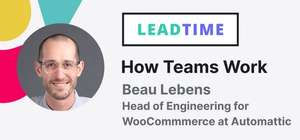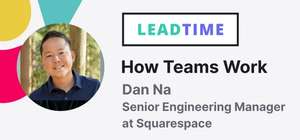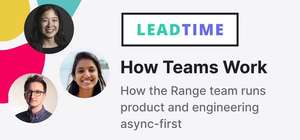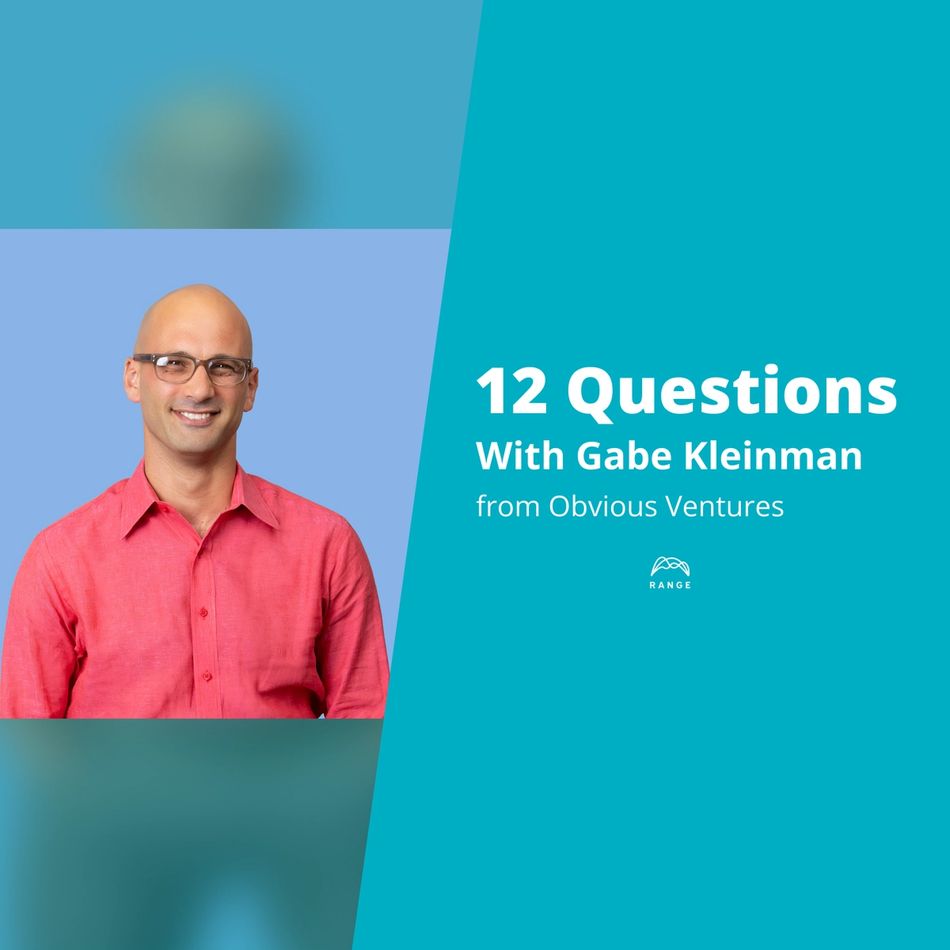
The 12 Questions series takes you into the minds of influential leaders to discuss today’s hot topics. Read their fresh views on leadership, managing through change, and the ins and outs of modern work. Think of it as your office hours with some of the most innovative people in business.
The series kicks off with seven interviews around the theme of resilience. Our first guest is Gabe Kleinman, who leads portfolio services and marketing at Obvious Ventures.
Gabe has experience across a diverse range of functions and brands, having led not only People Operations at Medium, but also Product Marketing, Partnerships, and Social Impact. Before Medium, Gabe co-led the Design for Learning practice at IDEO, helping organizations in the private, public, and social sectors tackle large-scale challenges in education. Gabe began his career at Creative Artists Agency (CAA), working across CAA Marketing, the CAA Foundation, and strategic agency initiatives for over a decade.

Thanks, Gabe, for taking part in this series. To start, can you describe your career in 12 words or less?
A lucky, nonlinear journey between people operations, storytelling, and client service.
That's an eclectic mix. Given the current state of the world, more and more teams are talking about resilience. What does being resilient mean to you?
Resilience on a personal level means being able to continue leading a purposeful life by adapting to shifting conditions on the ground, whatever those may be. It also means, especially today, learning to separate signals from noise, taking responsibility for your decisions and actions, and tightening the loop between strategy, reflection, and course correction. This holds true for businesses as well.
You said, "especially today." So, how has your thinking about resilience changed in 2020?
Times like these shine a bright light on simmering challenges that we all face, like the yawning wealth gap, parenting and time poverty, and structural racism. This year has helped me see that while some people and organizations are hardwired for resilience and others less so, we will feel the impacts of this at the community-level for decades to come—the good, the bad, and the ugly of it.
Anyone with school-age children sees this playing out in our education systems: some districts were made for this moment, while others have struggled mightily.
It is in our collective best interest to ensure that our institutions demonstrate resilience in their operations, which to me means doubling down on supporting the least well-off. I have taken this for granted in years past, but not anymore.
How have you come to understand the importance of resilience in your career?
I've come to learn that resilience doesn't mean simply "plowing through" bumps in the road that block you from your goal. It also means reevaluating your goals, and that the journey itself (at least for me) truly is the destination.
My path has been meandering, and at times bizarre as a result, and I wouldn't trade it for anything.
Do you ever check-in with yourself, and if so, when was the last time you did?
When I broke down crying at an all-hands meeting June 1.
There's a story there—perhaps for another day. Can you think of a time when you wish you were more resilient?
I always wish I could do a better job helping others be more resilient.
What's one big mistake you made and how did you bounce back?
Too many mistakes to count, but here's one. When I left my position at IDEO, I had one negative interaction amidst an overwhelmingly positive farewell. It changed the way I interact with everyone when transitioning away from one thing toward another.
What are some mistakes we all make when it comes to resilience?
We believe there's a right or wrong answer on how to proceed.
As you said, it's a journey. So, how can people be more resilient in their work-life?
By taking real ownership over the decisions we make, while understanding that not everything is within our control. It creates a positive bias toward action with a real and justified self-defense mechanism for when things don't go as planned.
If you could leave people with one piece of advice about how to deal with what's happening right now in the world, what would it be?
Don't be too hard on yourself — and set higher expectations for how we as individuals can make decisions for ourselves and the health of our communities.
How do you usually stay connected with your team?
I stay connected on the usual channels, but have found the most effective and meaningful way is to simply pick up the phone and talk.
Are there any books or resources that you’ve found particularly relevant to this moment?
Bringing together small groups of people to discuss challenges and solutions, even if online-only, can be deeply informative. I learned more moderating group calls with our CEOs and Chief People Officers than anything else I've read or seen — although I have found the Range Remote Work Primer to be brilliant. 🙂
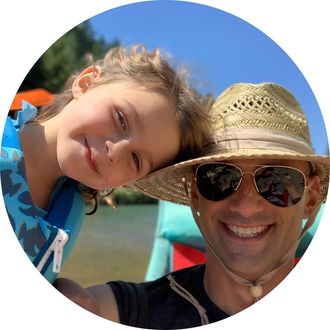
To make sure you don't miss our next 12 Questions article, sign up for our newsletter. Tune in next week to hear from another influential thought leaders.







